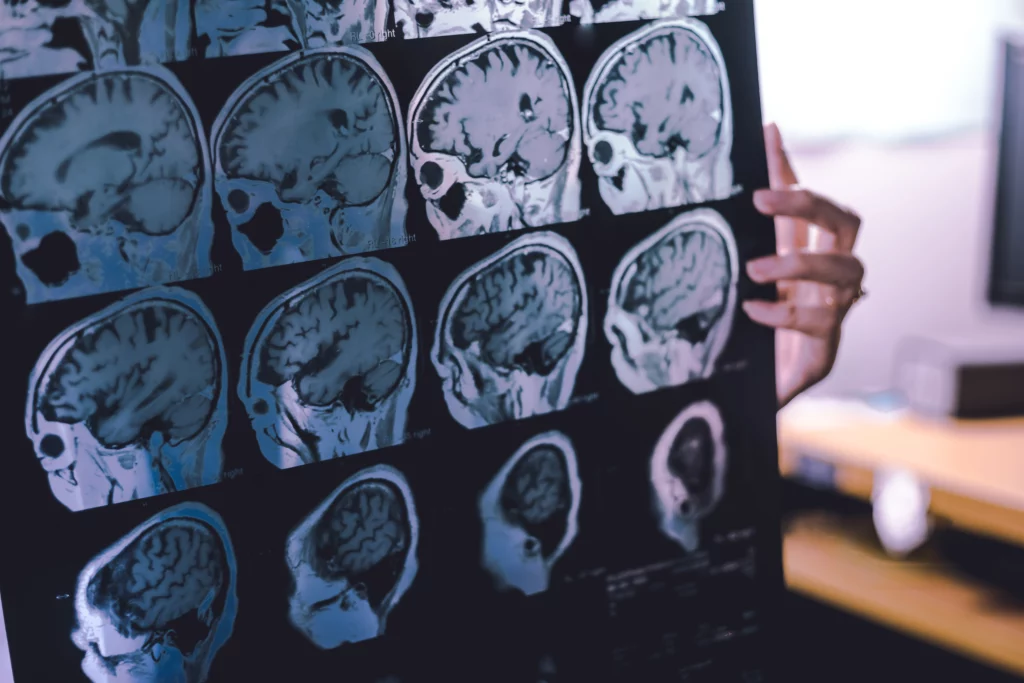Benzodiazepines for Dementia
Benzodiazepines, often referred to as benzos, are depressants used to slow the body’s nervous system and activity within the brain. They’re meant to produce a sedated feeling and are typically prescribed to help individuals with anxiety and seizures. This medication is only legally available with a prescription, and without one, it’s illegal to have. Multiple studies have been done about the connection — if any — between benzos and dementia. It’s caused many people to wonder if the two are in any way intertwined or if one has nothing to do with the other.
How Do Benzos Work?
When an individual takes benzos, it activates the release of the gamma-aminobutyric acid (GABA) neurotransmitter. Once the nervous system signal-blocker gets released, it slows down the brain’s activity while producing a calming effect.
What Is Dementia?
Dementia typically involves a decrease in problem-solving skills, thinking, memory, judgment, language and other cognitive abilities. It can also affect feelings, individual and social behaviors and how much independence a person retains. The most common cause of dementia, which has no cure yet and typically starts mild while worsening over time, is Alzheimer’s.
The signs and symptoms of dementia may vary from one individual to another. Although Alzheimer’s is the type of dementia people are usually most familiar with, there are several others, including Lewy body dementia and vascular dementia. Symptoms can vary between types, but there are several symptoms typically common to dementia as a whole, including:
- Being paranoid
- Mood changes
- Confusion
- Memory loss
- Difficulty in following conversations
- Sleep disturbances
- Disruption to problem-solving skills
Types of Benzos
The three types of benzos are long-acting, intermediate and short-acting. As evidenced by the names, short-acting are active for the least amount of time, followed by intermediate and long-acting. Some varieties of benzos include:
- Alprazolam – Used for anxiety and panic disorders
- Clobazam – Used for seizures
- Clonazepam – Used for seizures
- Diazepam – Used for anxiety, anesthesia, muscle relaxation, alcohol withdrawal, muscle spasms and seizures
- Lorazepam – Used for anxiety disorders, anesthesia and seizures
- Midazolam – Used for anesthesia and anxiety disorders
Effects of Using Benzos
Due to its potential short-term and long-term effects, benzos must only be used under the direction of a qualified medical professional. As with all medications, the effects can vary between individuals and can differ between varieties. It’s vital to be aware of both the good and negative side effects, especially for individuals who are taking other medications or have additional health conditions.
Some of the more common unpleasant side effects include nausea, blurred vision, drowsiness, forgetfulness, headaches, stuttering, dry mouth and confusion. Multiple positive side effects may come with using benzos, including feeling more calm and less stressed along with reduced levels of anxiety.
Various psychological effects, such as suppressed emotions and worsening depression, make it vital for an individual to discuss these symptoms and any others with a qualified medical professional. Adjusting the dosage or switching to a different type of medication may be necessary.
People who are using benzos for an extended time may notice one or more long-term side effects. Some of these effects can include feeling fatigued, having sleep problems, encountering cognitive impairment, being irritable, experiencing memory loss and developing overall changes in their personality. Addiction can also be an unfortunate long-term side effect.
It’s essential for individuals before they start taking benzos to be aware of the short-term and long-term side effects. Careful monitoring by a medical professional is a must to avoid misuse, dependence and addiction. In cases where an individual has already developed an addiction or dependence, it’s crucial for them to seek professional medical attention.
Some of the side effects of taking benzos may sound familiar. Effects such as memory loss, changes in mood and confusion are symptoms that someone with dementia may experience.
Benzos Withdrawal Symptoms
Withdrawal is a common occurrence after misuse or with prolonged use of the drug. This means even those with a prescription may experience withdrawal symptoms. Tapering off from benzos, also known as gradually slowing down usage, is typically considered a better, safer option than stopping use quickly. However, it must be done under strict medical guidance to make sure the process is done safely. Not everyone will experience the same withdrawal symptoms, but some can include irritability, achy muscles, seizures, paranoia, hallucinations, dizziness and headaches.
Benzos Overdose
It’s possible to overdose on benzos accidentally or intentionally. Common overdose symptoms associated with benzos include:
- Confusion
- Feeling jittery
- Over-sedation
- Severe aggression and/or mood swings
- Going into a coma
Treatment and Recovery Options for Benzos Addiction
The treatment and recovery process for a benzos addiction is complex, but it’s worth it to put in the work to get through to the other side. A comprehensive approach covering the physical, psychological and behavioral aspects is the best course of action, but it must be done under strict guidance by a qualified professional. Two of the most common potential treatment and recovery options include rehabilitation programs and counseling.
Inpatient and Outpatient Rehabilitation Programs
Treatment and recovery from a benzos addiction requires a structured approach and an environment that offers much-needed support, which we offer at Charles River Recovery. The programs at our inpatient rehabilitation center, where clients stay for an extended period of time, provide help such as counseling sessions, constant supervision and peer support groups. This option is typically ideal for those with a severe addiction to benzos. Additionally, outpatient rehabilitation, where clients don’t stay at the facility, offers programs that are usually better for those with a less extreme addiction.
Counseling and Behavioral Therapy
Counseling and behavioral therapy are crucial for people recovering from a benzos addiction and even after. The counseling sessions, which can be conducted in groups or on an individual basis, can help individuals deal with the critical issues contributing to addiction as well as offering coping mechanisms.
No treatment option should be decided on alone. Considering the complex nature of the situation, a qualified medical professional needs to make the decision about which treatment option is best. How successful the treatment is depends on a variety of variables, including the willingness of the client, support from loved ones and establishing the right treatment plan.
Benzos and Dementia
Whether or not there are ties between dementia and benzos use is not definitive. Despite multiple studies having been done to determine if there’s a connection between the two, there’s still a significant amount of conflicting results and inconsistent results. Some individuals taking benzos and their loved ones may be happy to know that there has been some information reporting “no association” connecting the two, while other information reported an “elevated risk.” Considering the seriousness of the issue, it’s undoubtedly one worth exploring further, especially for individuals at risk of developing dementia or who may find themselves prescribed benzos in the future.
One thing that unfortunately is certain is that dementia is on the rise, with no signs of it slowing down anytime soon. It’s not just dementia as a whole but also early-onset (aka young-onset) Alzheimer’s and early-onset/young-onset dementia, which affects those who are younger than 65.
While the previously mentioned dementia symptoms refer to dementia as a whole, there are early signs you may start noticing in yourself or a loved one. Some include being unable to do typical tasks as usual, suddenly feeling lost in your neighborhood, misplacing items more frequently and noticing changes in thoughts and verbal interactions.
Due to the significant amount of side effects someone taking benzos may experience, it’s understandable why so many would be concerned about the elderly taking them and if there are potential ties to dementia. This is especially true when benzos are factored in along with the typical general indicators of aging, such as a decrease in strength and memory loss. For instance, the medication can lead to increased risks for seniors, including pertaining to falls, confusion and fractures.
No one, including seniors, should take benzos without getting a prescription, doing their own research and having a lengthy conversation with the prescribing doctor. Considering the increased vulnerabilities seniors may experience, it’s especially important that they discuss how benzos might specifically affect them in their current health condition and if that condition should worsen over time. Individuals of any age who are at risk for developing dementia should be honest about this so that a doctor can decide if benzos are ideal to prescribe. Provide as much information as possible, including who in your family has had dementia, how old they were when they got their diagnosis and the length and extent of its progression if possible. The more details you’re able to provide, the better.
Individuals taking benzos, their caregivers and loved ones should pay close attention to any physical, emotional and psychological changes in the person taking the medication. Although some changes are to be expected, it’s still vital to note them and report them to the prescribing doctor, especially if it’s regarding someone at risk for dementia or who has already received the diagnosis. It’s also essential for individuals taking benzos and their support system to watch out for any potential signs of misuse or an overdose.
The best thing anyone can do when it comes to taking benzos or noticing the signs of dementia is to be their own advocate. Take time to look up recent studies, research what’s currently being done or is in the works for the future and don’t be afraid to ask questions. While you don’t want to live scared, there’s nothing wrong with being informed, especially when it comes to the current state of your body and where it’s potentially headed in the future. Find a doctor who is willing to discuss findings with you without judgment and answer your questions.






